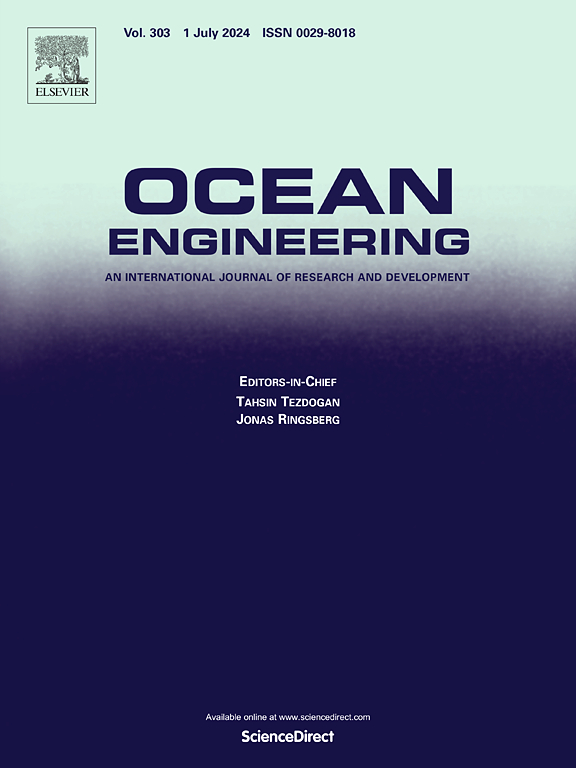基于元强化学习的自主船舶避碰
IF 5.5
2区 工程技术
Q1 ENGINEERING, CIVIL
引用次数: 0
摘要
避碰是船舶智能导航的关键。船舶在现实航行环境中会遇到各种复杂的场景,这就需要提高避碰策略的适应性和有效性。因此,我们创新性地提出了一种解决船舶避碰问题的元强化学习方法。受元学习的启发,我们设计了一个两层循环模型来增强避碰策略的适应性和有效性。然后,我们创建了一种任务抽样方法来训练船舶代理在高风险相遇情况下做出避碰决策。设计了风险评估的目标函数和策略梯度法,使船舶agent能够全面评估当前相遇场景的风险情况,优化避碰策略。最后,我们进行了仿真实验来验证我们工作的可行性。结果表明,避碰策略优于各种比较方法,在不同碰撞场景下的适应性、有效性和安全性方面表现出竞争优势。总体而言,该方法为提高船舶智能导航提供了更安全的解决方案。本文章由计算机程序翻译,如有差异,请以英文原文为准。
Meta-reinforcement learning-based collision avoidance for autonomous ship
Collision avoidance is critical for intelligent ship navigation. Ships encounter a variety of complex scenarios in real-world navigation environments, which requires improvements in the adaptability and effectiveness of collision avoidance policies. Therefore, we have innovatively proposed a meta-reinforcement learning method for solving ship collision avoidance. Inspired by meta-learning, we designed a two-layered recurrent model to enhance the adaptability and effectiveness of collision avoidance policies. Then, we created a task sampling method to train vessel agents in making collision avoidance decisions for high-risk encounter situations. The objective function and the policy gradient method for risk assessment are designed to enable vessel agents to thoroughly evaluate the risk situation of the current encounter scenario and optimize the collision avoidance policy. Lastly, we conducted simulation experiments to validate the feasibility of our work. The results indicate that collision avoidance policies outperform various comparative methods, exhibiting competitive advantages in adaptability, effectiveness, and safety in diverse encounter scenarios. Overall, our novel method provides a safer solution to enhance intelligent ship navigation.
求助全文
通过发布文献求助,成功后即可免费获取论文全文。
去求助
来源期刊

Ocean Engineering
工程技术-工程:大洋
CiteScore
7.30
自引率
34.00%
发文量
2379
审稿时长
8.1 months
期刊介绍:
Ocean Engineering provides a medium for the publication of original research and development work in the field of ocean engineering. Ocean Engineering seeks papers in the following topics.
 求助内容:
求助内容: 应助结果提醒方式:
应助结果提醒方式:


